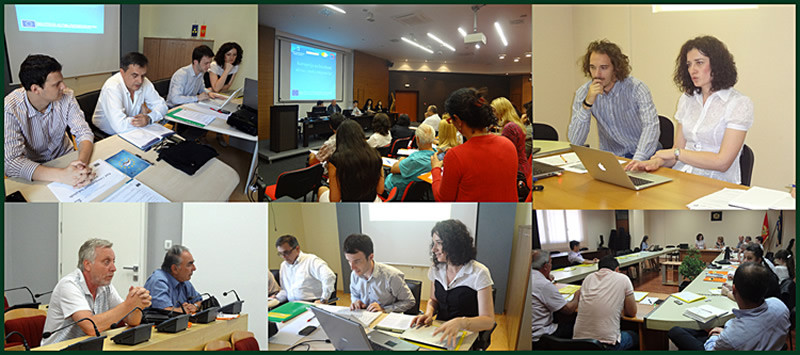Centre for Civic Education (CCE), in cooperation with partners, and with support of the EU Delegation to Montenegro, within the project “Corruption at the local level – zero tolerance”, conducted six consultative trainings in municipalities of Tivat, Kotor, Bar, Herceg Novi, Budva and Pljevlja, and by the end of this month it is planned additional eight trainings in municipalities of Plužine, Rozaje, Mojkovac, Kolasin, Danilovgrad, Cetinje, Niksic and Podgorica.

These meetings with main administrators, councillors, members of local committees for economy, finance and budget, officers of local authorities, and representatives of local NGOs, within the broader project framework have the aim to strengthen the role of civil society organizations, local self-governments and competent state bodies in policy development, monitoring and implementation of the campaign for reducing corruption in local communities of Montenegro. In specific, the project is seeking to strengthen the implementation of anti-corruption policies at the local level, as well as to increase the awareness of the citizens about the importance of effective anti-corruption mechanisms and procedures in 14 Montenegrin municipalities.
During these meetings in the municipalities, special attention is given to following topics:
• Public-private partnerships – accountability, transparency and efficiency; Corruption and public procurement in Montenegro; Suppression of corruption in employment at the local level;
• Work and capacities of the local parliaments;
• Control of local budgets;
• Political corruption: definition and causes, political corruption and rule of law.
Introductory presentations on these topics have Jovana Marovic, research coordinator at the Institute Alternative (IA), Damir Nikočević, programme associate in the CCE, Marko Sošić, public policy researcher in the IA and Boris Maric, Senior Legal Advisor in the CCE.
So far, these meetings were attended by 97 councilors, officers of the local administration, representatives of the local non-governmental organizations, and the next consultative trainings are held in Pluzine (16 July), Kolasin (17 July), Rozaje (18 July), Mojkovac (19 July), Niksic (22 July), Danilovgrad (23 July ), Cetinje (24 July) and Podgorica (25 July).
In addition to consultative trainings, activities under the project are also encompassing the monitoring of local action plans to fight against corruption in these 14 municipalities, three quarterly reports and one annual report, the publication “Strengthening the fight against corruption at the local level – monitoring and evaluation of fulfillment of local action plans for fighting against corruption in 14 Montenegrin municipalities”, campaign to raise awareness of citizens to become active participants in the fight against corruption, advocating for Citizens report cards, conducting research for policy studies in six problem areas (procurement, public-private partnerships, urban development, employment, political corruption and the work of local parliaments), the organization of 6 thematic panel discussions for each critical area of corruption with aim to present to the public a study of practical policy recommendations, as well as the production of a manual for councilors and representatives of NGOs in the fight against corruption at the local level.
The project “Corruption at the local level – zero tolerance!” implements the Centre for Civic Education (CCE), in cooperation with the NGO Institute Alternative (IA) from Podgorica, NGO Bonum from Pljevlja and Nada from Herceg Novi, and it is supported by the European Union through the EU Delegation to Montenegro through IPA 2011.
Nikola Đonović, Programme Coordinator
